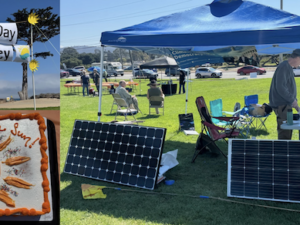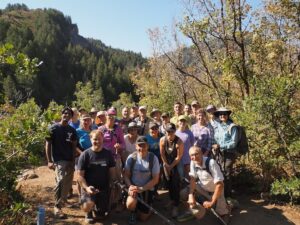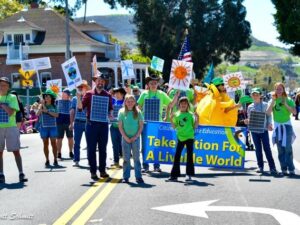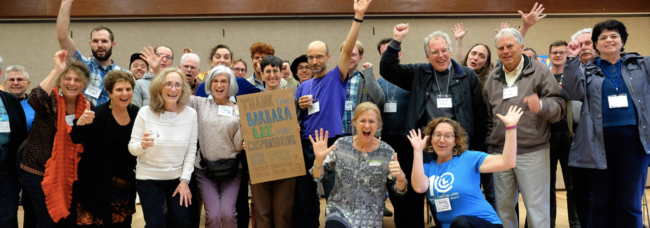
CCL’s Alameda chapter celebrated when their representative, Congresswoman Barbara Lee, cosponsored the Energy Innovation Act in March of 2019.
CCL chapter attends racial justice workshop
By Ben Keller
In recent months, the issues of systemic racism and police brutality have exploded into the national consciousness like never before. Members of the CCL Alameda County chapter have been engaging with these issues, too. Made up of members of California’s diverse 13th congressional district, and represented by Barbara Lee, one of the foremost Black members of Congress, CCL Alameda members have long been aware that the chapter membership has stark demographic differences from the broader community.
In 2019, chapter members reached out to representatives of the Bay Area chapter of Showing Up for Racial Justice (SURJ), a national organization that educates and organizes white people for racial justice. The result was an in-depth training on environmental racism, privilege, and inclusion, organized by SURJ Bay Area facilitators and designed specifically for CCL members.
Nearly 30 attendees from three Bay Area chapters attended the four-hour workshop. “Attending the SURJ training was very powerful,” recalled CCL Alameda member Phoebe Schenker. “The workshop leaders made it a really safe place to talk about really challenging topics. They provided language and definitions, engaged us in the conversation, and laid out the history of the dominant white supremacist culture.” The workshop also addressed white supremacy’s “connections to the environmental justice issues we particularly grapple with at CCL.”
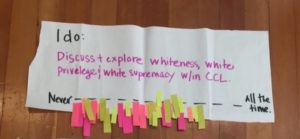
Even though she had heard of some of these ideas before, Schenker said, “The game really made you feel it in a more emotional way, making an empathetic connection to the frustration of seeing the other group propelled by this invisible tailwind.” In other words, she realized, “These powerful, invisible things are just holding people back in so many different ways.”
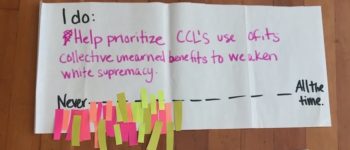
The learning and conversations provoked by the workshop and the CCL members that attended extended far beyond that Saturday morning. In the months following the workshop, leaders of CCL Alameda have worked to implement changes to the chapter’s operations. The chapter set explicit goals to increase diversity and to work with local partner organizations led by people of color, and a new diversity action team was formed to purposefully work toward these goals. Chapter meetings were made more inclusive, with explicit discussion of diversity as one of CCL’s core values and more clarity about how chapter decisions were made. Organizers also invited representatives of local organizations focused on environmental justice to present and lead discussions. The hard work of building a truly inclusive chapter continues today.
Ben Keller has volunteered with the Alameda County chapter of CCL since 2014. He resides in Oakland, California.

